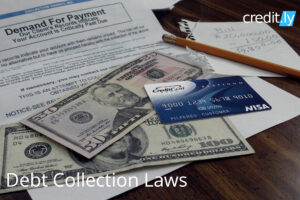[et_pb_section fb_built=”1″ _builder_version=”3.22.3″][et_pb_row _builder_version=”3.25″ background_size=”initial” background_position=”top_left” background_repeat=”repeat”][et_pb_column type=”4_4″ _builder_version=”3.0.47″ custom_padding=”|||” custom_padding__hover=”|||”][et_pb_post_title _builder_version=”3.26.6″ title_font=”|700|||||||” title_line_height=”2em” z_index_tablet=”500″ title_text_shadow_horizontal_length_tablet=”0px” title_text_shadow_vertical_length_tablet=”0px” title_text_shadow_blur_strength_tablet=”1px” meta_text_shadow_horizontal_length_tablet=”0px” meta_text_shadow_vertical_length_tablet=”0px” meta_text_shadow_blur_strength_tablet=”1px” box_shadow_horizontal_tablet=”0px” box_shadow_vertical_tablet=”0px” box_shadow_blur_tablet=”40px” box_shadow_spread_tablet=”0px” text_shadow_horizontal_length_tablet=”0px” text_shadow_vertical_length_tablet=”0px” text_shadow_blur_strength_tablet=”1px”][/et_pb_post_title][et_pb_text _builder_version=”3.29.2″ z_index_tablet=”500″ text_text_shadow_horizontal_length_tablet=”0px” text_text_shadow_vertical_length_tablet=”0px” text_text_shadow_blur_strength_tablet=”1px” link_text_shadow_horizontal_length_tablet=”0px” link_text_shadow_vertical_length_tablet=”0px” link_text_shadow_blur_strength_tablet=”1px” ul_text_shadow_horizontal_length_tablet=”0px” ul_text_shadow_vertical_length_tablet=”0px” ul_text_shadow_blur_strength_tablet=”1px” ol_text_shadow_horizontal_length_tablet=”0px” ol_text_shadow_vertical_length_tablet=”0px” ol_text_shadow_blur_strength_tablet=”1px” quote_text_shadow_horizontal_length_tablet=”0px” quote_text_shadow_vertical_length_tablet=”0px” quote_text_shadow_blur_strength_tablet=”1px” header_text_shadow_horizontal_length_tablet=”0px” header_text_shadow_vertical_length_tablet=”0px” header_text_shadow_blur_strength_tablet=”1px” header_2_text_shadow_horizontal_length_tablet=”0px” header_2_text_shadow_vertical_length_tablet=”0px” header_2_text_shadow_blur_strength_tablet=”1px” header_3_text_shadow_horizontal_length_tablet=”0px” header_3_text_shadow_vertical_length_tablet=”0px” header_3_text_shadow_blur_strength_tablet=”1px” header_4_text_shadow_horizontal_length_tablet=”0px” header_4_text_shadow_vertical_length_tablet=”0px” header_4_text_shadow_blur_strength_tablet=”1px” header_5_text_shadow_horizontal_length_tablet=”0px” header_5_text_shadow_vertical_length_tablet=”0px” header_5_text_shadow_blur_strength_tablet=”1px” header_6_text_shadow_horizontal_length_tablet=”0px” header_6_text_shadow_vertical_length_tablet=”0px” header_6_text_shadow_blur_strength_tablet=”1px” box_shadow_horizontal_tablet=”0px” box_shadow_vertical_tablet=”0px” box_shadow_blur_tablet=”40px” box_shadow_spread_tablet=”0px”]
Start Building Credit Once You Turn 18. Success and your credit score go hand in hand. Good credit is crucial to unlocking many financial opportunities in life. When you have a great credit score, you will see lower interest rates on car loans, credit cards, and mortgages. Some employers and landlords even check credit reports before they make a job offer or approve a resident application.
It’s never to early to start. Building good credit takes time, and adults as young as 18 should consider starting immediately so they have plenty of time to build up their credit score.
Here’s how to start building credit once you turn 18 or at any age.
1. Understanding the Basic Value of Credit
As you start to build credit, you should understand the all the basics and how it works.
Pay Attention to Your credit report – maintained by credit bureaus Experian, TransUnion, and Equifax – contains data on your current and past debts, payment history, residential history, and more. This data is supplied by many of the lenders, creditors, and businesses with which you hold accounts.
The information contained in your credit report determines your credit score. Higher credit scores are more attractive to lenders and creditors. The factors that influence your score include:
- Payment history
- Average age of accounts
- Credit utilization ratio
- Account mix
- New credit
- inquires
You’re ready to start your life, and as a new adult, some of these factors may not currently apply to you. However, they can all negatively or positively affect your score, depending on your behavior as a consumer. Educating yourself on credit now will help you avoid costly mistakes in the future.
2. Become an Authorized User Via a Parent or Friend
If you have a friend or family member who is willing to add you as an authorized user on their credit card, you can piggyback off their credit card activity to build your credit. Even if you don’t use the card, the account can still land on your credit report and boost your credit score.
This method poses some risks, both to the primary cardholder and the authorized user. If you or the primary cardholder rack up too much debt or miss payments, that activity could end up damaging the credit of both parties.
You should also verify that the credit card company reports card activity for authorized users. If they don’t, your credit won’t see any benefit.
3. Get a Starter Credit Card with Low Limits and Grow
Credit cards are one of the best tools around for building credit, but you may have trouble qualifying for one when you have no credit history. Luckily, there are a few credit card options for young people with little or no credit:
- Unsecured Credit Cards: If you don’t have the money to make a security deposit, consider an unsecured credit card like the MasterCard Credit Card. This card offers a process that presents you with a credit line based on your creditworthiness before you apply. It also has no penalty or hidden fees—a perfect fit for any young adult’s starter card.
- Secured Credit Cards: Secured credit cards require an upfront security deposit to open. Your deposit will typically equal your initial credit limit – for example, a $500 security deposit would get you a $500 credit limit. These cards are easier to qualify for, but you can use them to make purchases and build credit just like traditional credit cards.
- Student Credit Cards: If you’re currently enrolled in school, you can apply for a student credit card. These cards typically have low credit limits, but they will help you build credit and they may even offer extra incentives for earning good grades.
4. Make Payments On Time Each Month
Making timely payments is the most important thing you can do to build credit, as payment history makes up 35% of your credit score. A positive payment history will help your credit score immensely.
This advice applies to credit cards, loans, utilities like cell phone services, and any other account that requires a monthly payment. No matter the account type, a late or missed payment that lands on your credit report can do significant damage to your credit score.
5. Maintain a Low Credit Card Balance On All Your Accounts
Your credit utilization ratio, or the amount of available credit you have tied up in debt, is another major contributor to your credit score. Most experts recommend keeping your credit card balances below 30% of the available credit limit.
Ideally, you should pay your balance off in full each month to avoid interest and keep your utilization low.
6. Get a Loan and Watch Your Credit Score Skyrocket
Getting a loan just to build credit is generally not a good idea, as you shouldn’t take on debt only for the sake of your credit score. But if you have a valid reason, such as needing a car for college, a small loan in your name can help you build credit.
Just like credit cards, loans will only build credit if you pay them on time every month. And if you also have a credit card, getting a loan will help with the account mix factor of your credit score.
7. Monitor Your Credit Report and Credit Score Each Month
Now that you’re building credit, you should monitor your credit report and credit score. Monitoring your credit is one of the best ways to learn what will positively or negatively impact your scores. It will also help you catch inaccuracies or signs of identity theft sooner.
You can check your credit report annually with each major credit bureau. As you review your report, look for any negative or inaccurate information that could be screwing up your credit.
8. Keep it Simple… for Now… Apply For Credit Slowly
The more credit cards and loans you open, the higher chances you have of falling into debt. When you’re just starting out, you should probably play it safe and manage one basic credit card and/or small loan until you get the hang of things. Trying to do manage too many debts at once could get you in over your head.
Over time, you can start to add other credit cards or loans to the mix, diversifying your credit profile and adding more opportunities to build credit. And because the age of your accounts affects your credit score, just keeping accounts open will help you build credit in the long run.
More on Credit Reports and Credit Scores Can Be Found At Credit.ly
- What’s a Good Credit Score?
- How to Get Your Free Annual Credit Report
- How Do I Dispute an Error on My Credit Report?
[/et_pb_text][/et_pb_column][/et_pb_row][/et_pb_section]









